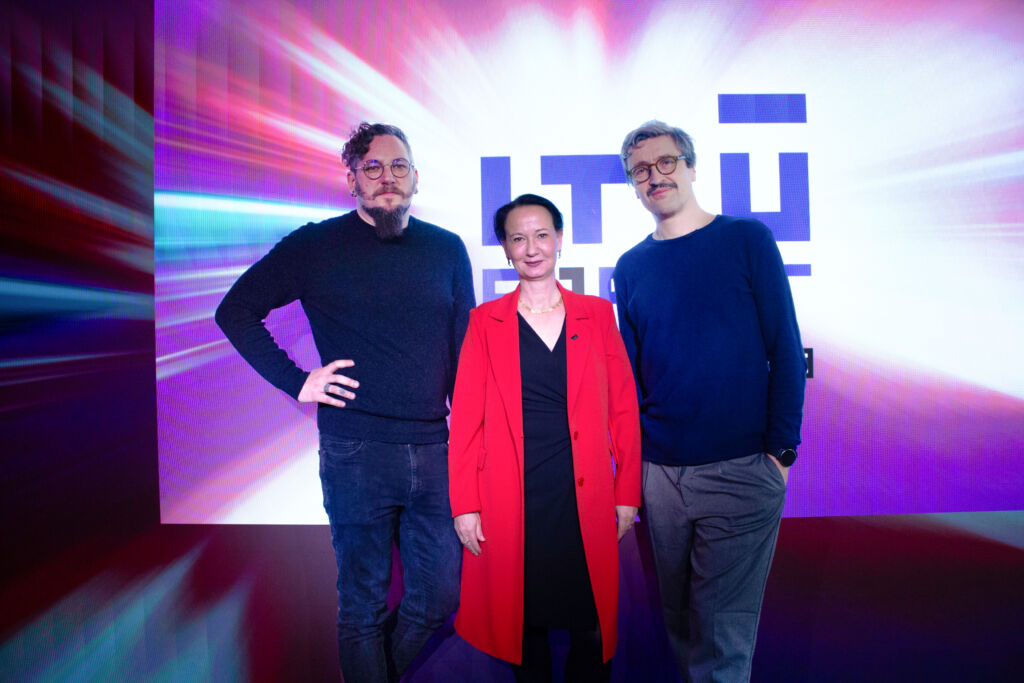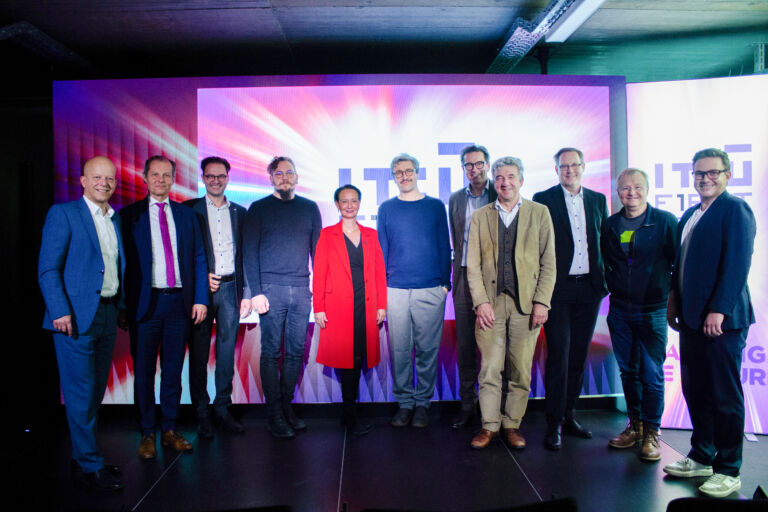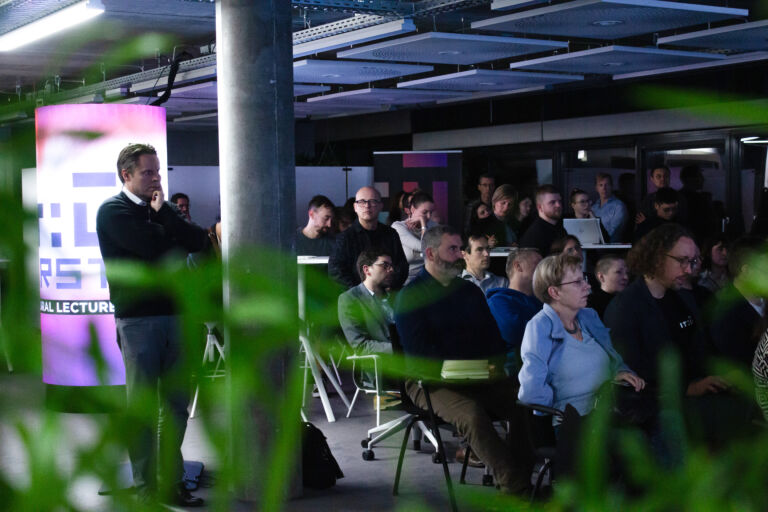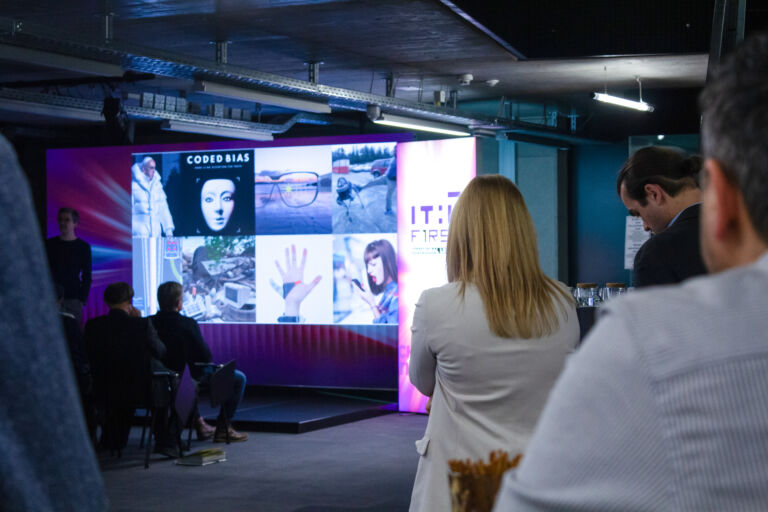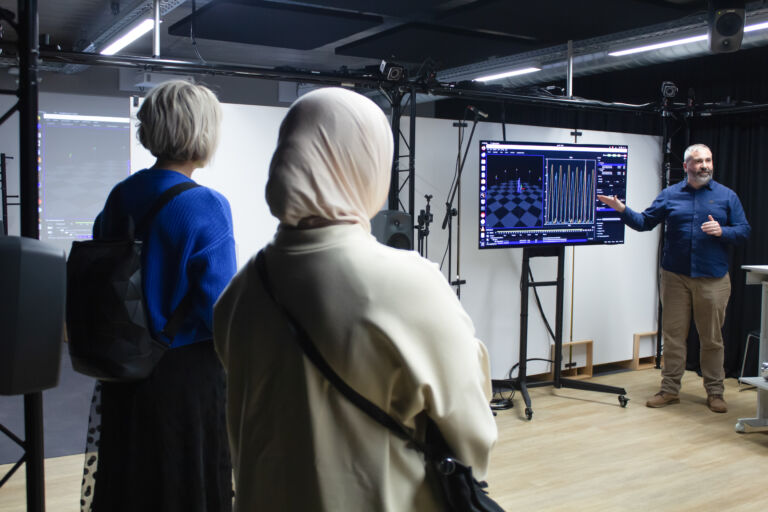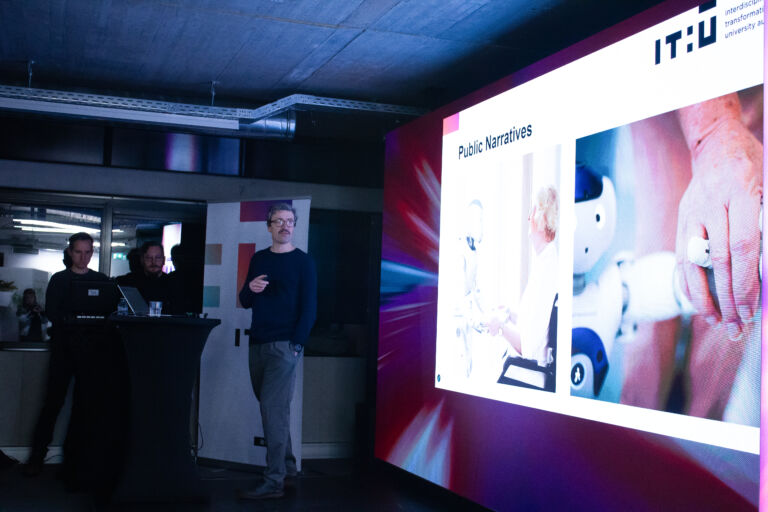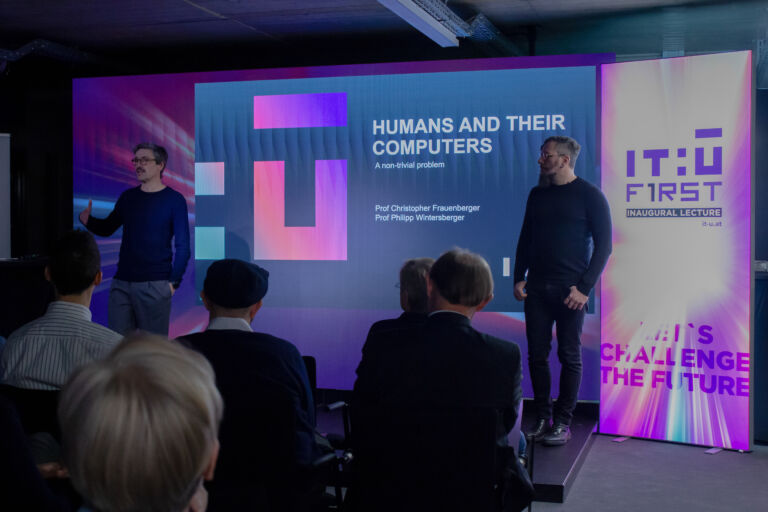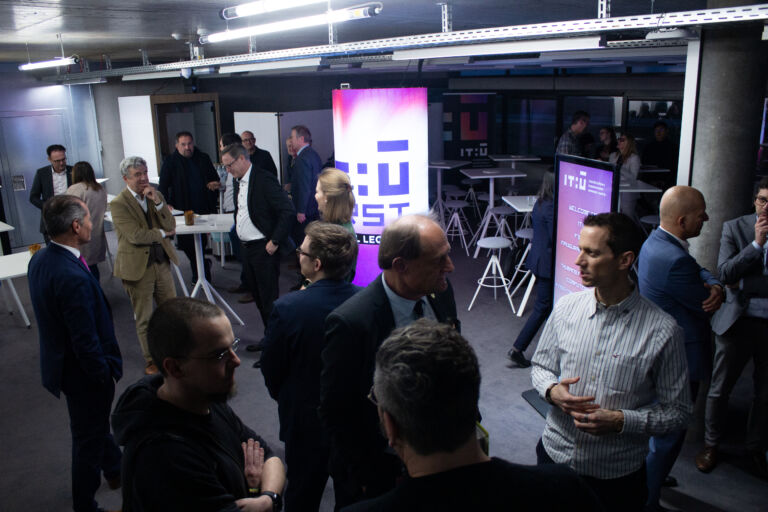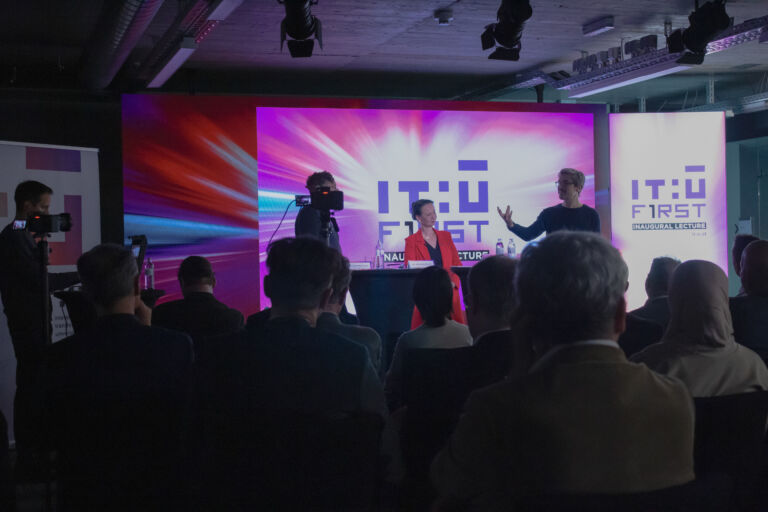IT:U kicked off its first Inaugural Lecture
On January 22, 2025, IT:U Austria hosted its first inaugural lecture, marking the university’s commitment to interdisciplinary innovation. Led by founding professors Christopher Frauenberger and Philipp Wintersberger, the event attracted more than 130 attendees, with almost half participating onsite. Numerous scientists from national and international universities attended the lecture, as well as representatives from the local economy and industry. After a formal opening by Founding President Stefanie Lindstaedt, attendees listened to the professors’ presentations before concluding the evening with a lively panel discussion.
A Milestone in bridging Academia and Community
The inaugural lecture marked the start of IT:U’s bold journey to redefine education and innovation. It celebrated the founding professors as visionaries shaping the future of human-computer interaction (HCI) and interdisciplinary research. More than an academic milestone, the event united the academic and broader community, emphasizing IT:U’s mission to bridge disciplines and drive meaningful transformation.
“IT:U is proud of the expertise and international networks of its founding professors. ‘Human factors’—the study of human behavior—are one of our key research areas at IT:U. Human factors are crucial for the acceptance of digital technologies. Today, it is about optimizing the relationship between humans and machines to maximize their benefits for society. With this first inaugural lecture, we have set an important impulse in this direction.”
Stefanie Lindstaedt, Founding President of IT:U
Key Insights from the Lecture
The lecture, titled “Humans and Their Computers: A Non-Trivial Problem”, revolved around themes central to IT:U’s mission and one of its research focus on Human-Computer Interaction (HCI).
- Attention Management in HCI: Digitalization & technology has fragmented our attention spans, reducing focus and productivity. IT:U researchers are developing AI-based “Attention Management Systems” to intelligently manage interruptions. These systems prioritize critical tasks, enhance focus in workplaces, improve safety in automated driving, and optimize multitasking to increase overall productivity.
- Caring Robots in Society: With the growing demand for eldercare and a shortage of care workers, IT:U is collaborating with care institutions and organizations to explore how robots can complement—not replace—human caregivers. Christopher Frauenberger’s team is developing semi-autonomous robots that can assist with tasks like documentation, support dementia patients, and offer personalized care based on patients’ individual needs and histories.
- Human Modeling and Simulation: Modeling human behavior helps researchers create empathetic, adaptive systems for environments like healthcare and workplaces. Using Reinforcement Learning and Computational Rationality, IT:U develops simulations that train Intelligent User Interfaces to dynamically adapt to user needs, enhancing collaboration and productivity.
- Prospective Research in Entanglement: Humans and technology are deeply interwoven, shaping each other in profound ways. IT:U explores how to design systems that reflect societal values and help us become the people we aspire to be. By fostering meaningful human-technology relationships, IT:U empowers individuals and addresses modern challenges.
“Challenges involving humans and their computers cannot be addressed from a single disciplinary perspective—such as the question of developing robotics for eldercare. A discipline is like a flashlight that illuminates a specific part of the world. But in these contexts, more is needed. To understand the roles that technology can and should play, insights are required from care sciences, social sciences, and ethics. The great challenge of interdisciplinary research is not only sharpening individual perspectives but connecting them to create a whole that is greater than the sum of its parts. We need multiple flashlights shining from different angles—and that’s exactly what IT:U is about.”
Christopher Frauenberger, Founding Professor of Human-Computer Interaction.
“In our research, we aim to solve this problem with AI systems that learn to guide our attention in the right direction. For instance, notifications can be delivered at appropriate, less disruptive times. Another application is supporting users in working with automated systems like autonomous vehicles or industrial robots. These so-called ‘Attention Management Systems’ will become increasingly important in the future, as human capacity remains limited compared to machines’ ever-growing computational power.”
Philipp Wintersberger, Founding Professor of Intelligent User Interfaces.
Our Next Inaugural Lecture
The Inaugural Lecture format offers exciting insights into IT:U’s eleven research groups. Austria’s newest technical university is committed to interdisciplinary research and project-based, personalized learning, driving proactive and solution-oriented approaches to digital transformation.
Our upcoming lectures:
- 4 February 2025: “AI-Powered Science: Transforming Knowledge and Innovation Across Disciplines” by Daniel Klotz (Assistant Professor of Machine Learning in Earth Science) and Yufang Hou (Professor of Natural Language Processing).
- 4 March 2025: “Understanding Systems and Societies through Interdisciplinarity” by Tiago de Paula Peixoto (Professor of Complex Systems and Network Science) and Bernd Resch (Professor of Geosocial Artificial Intelligence).
- 18 March 2025: “Neuro-(X)AI: Illuminating the Black Box of Minds and Machines” by Jie Mei (Assistant Professor of Computational Neuroscience) and Nina Hubig (Assistant Professor of Explainable Artificial Intelligence).
- 2 April 2025: “An Interdisciplinary Approach to Social Norms and Practices: Theory, Work and Rules” by Sebastian Dennerlein (Assistant Professor of Digital Transformation in Learning), Christian Hilbe (Professor of Game Theory and Evolutionary Dynamics), and Ben Wagner (Professor of Human Rights and Technology).
